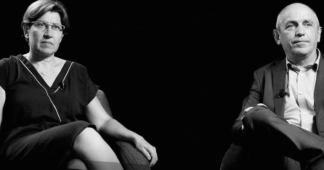By Belinda Luscombe
Nov 5, 2021
At the age of 98, former Secretary of State Henry Kissinger has a whole new area of interest: artificial intelligence. He became intrigued after being persuaded by Eric Schmidt, who was then the executive chairman of Google, to attend a lecture on the topic while at the Bilderberg conference in 2016. The two have teamed up with the dean of the MIT Schwarzman College of Computing, Daniel Huttenlocher, to write a bracing new book, The Age of AI, about the implications of the rapid rise and deployment of artificial intelligence, which they say “augurs a revolution in human affairs.” The book argues that artificial intelligence processes have become so powerful, so seamlessly enmeshed in human affairs, and so unpredictable, that without some forethought and management, the kind of “epoch-making transformations” that they will deliver may send human history in a dangerous direction.
The Kissinger and Schmidt sat down with TIME to talk about the future they envision.
Dr. Kissinger, you’re an elder statesman. Why did you think AI was an important enough subject for you?
Kissinger: When I was an undergraduate, I wrote my undergraduate thesis of 300 pages—which was banned after that ever to be permitted—called “The Meaning of History.” The subject of the meaning of history and where we go has occupied my life. The technological miracle doesn’t fascinate me so much; what fascinates me is that we are moving into a new period of human consciousness which we don’t yet fully understand. When we say a new period of human consciousness, we mean that the perception of the world will be different, at least as different as between the age of enlightenment and the medieval period, when the Western world moved from a religious perception of the world to a perception of the world on the basis of reason, slowly. This will be faster.
There’s one important difference. In the Enlightenment, there was a conceptual world based on faith. And so Galileo and the late pioneers of the Enlightenment had a prevailing philosophy against which they had to test their thinking. You can trace the evolution of that thinking. We live in a world which, in effect, has no philosophy; there is no dominant philosophical view. So the technologists can run wild. They can develop world-changing things, but there’s nobody there to say, ‘We’ve got to integrate this into something.’
Continue reading at www.msn.com
We remind our readers that publication of articles on our site does not mean that we agree with what is written. Our policy is to publish anything which we consider of interest, so as to assist our readers in forming their opinions. Sometimes we even publish articles with which we totally disagree, since we believe it is important for our readers to be informed on as wide a spectrum of views as possible.











